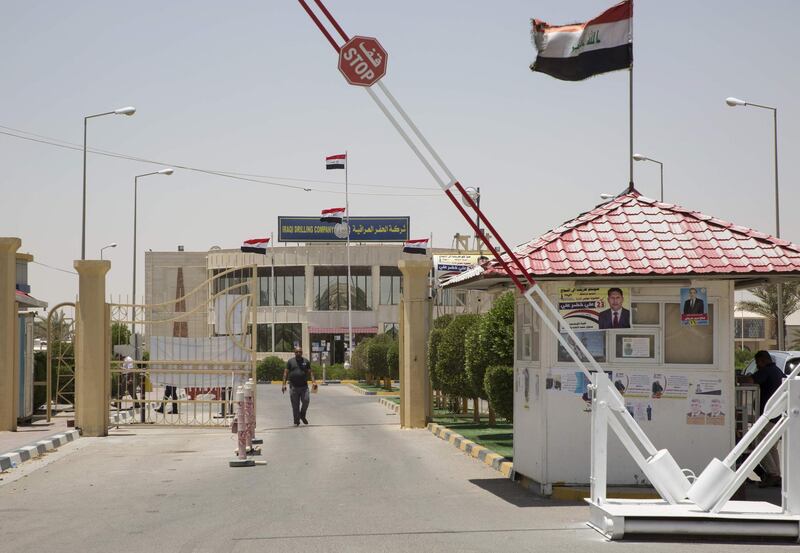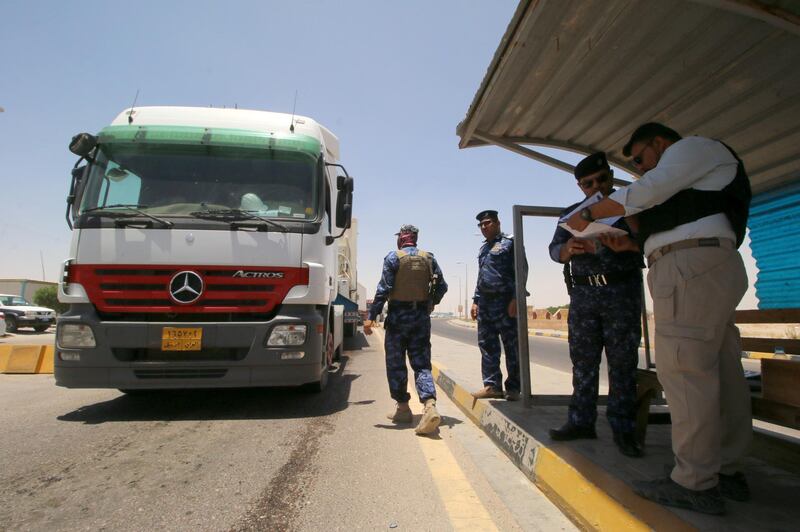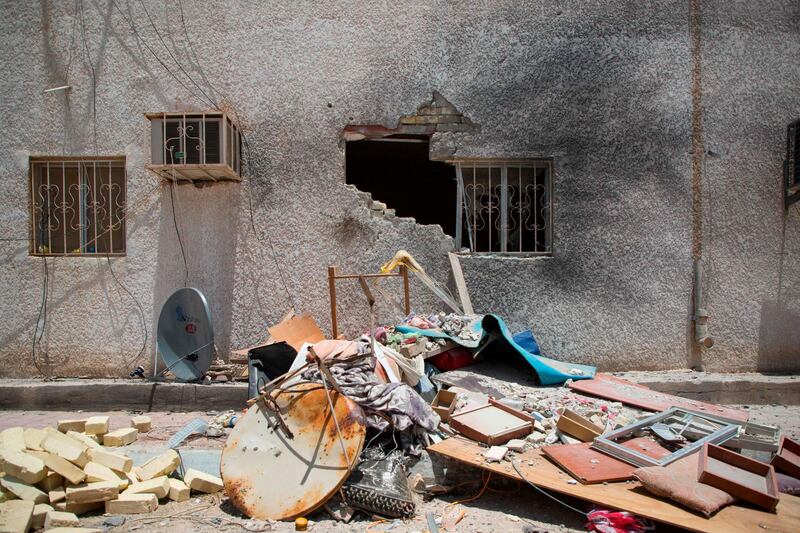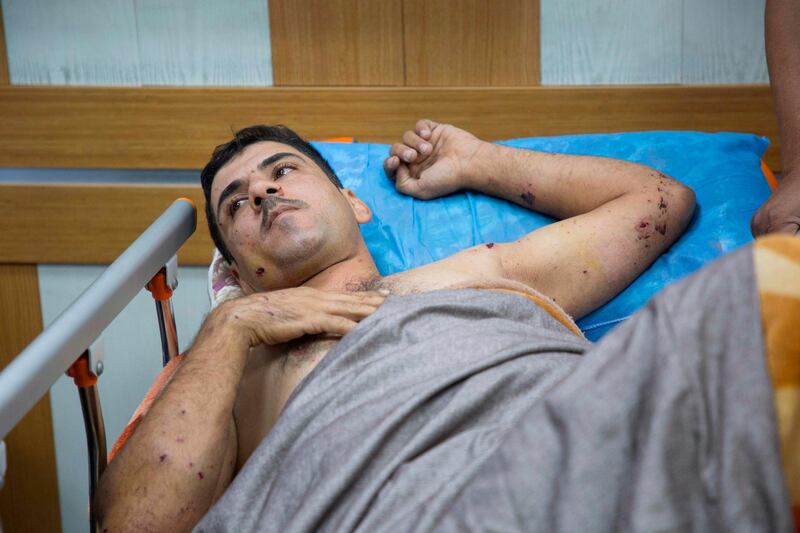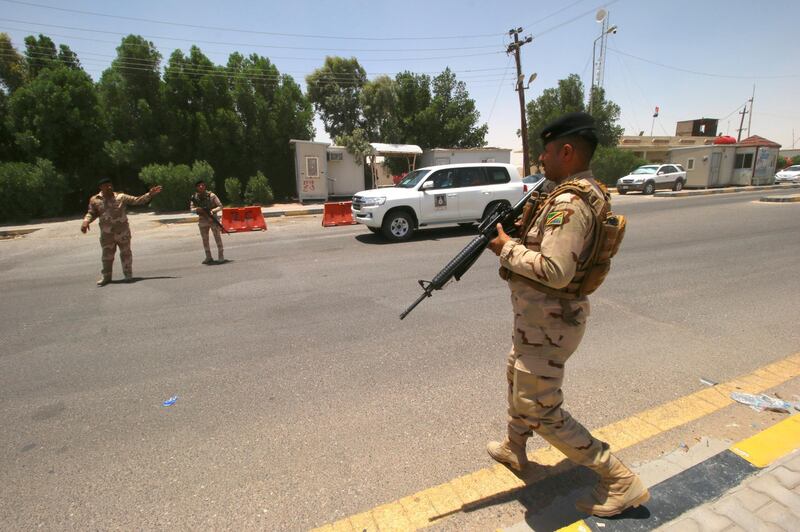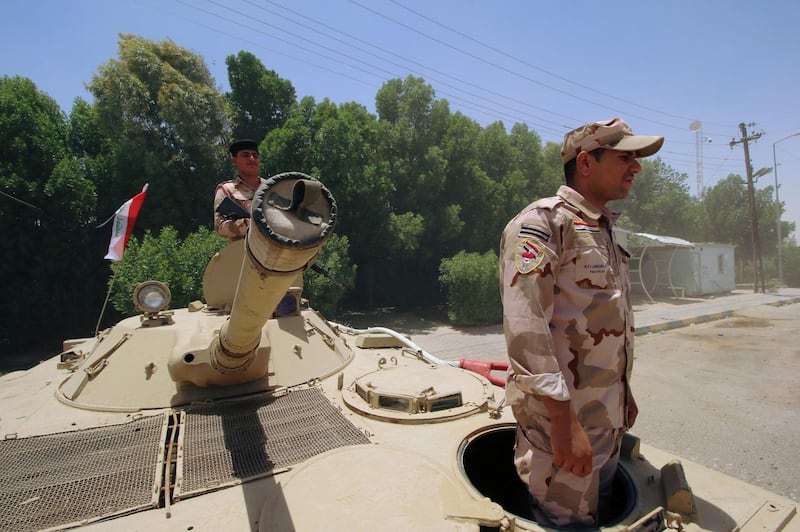Iraq will identify and hold those responsible for conducting a series of rocket attacks against US military and civilian sites across the country, security officials said on Wednesday.
A rocket landed near an Iraqi military base hosting US forces in the northern city of Mosul on Tuesday.
Another hit on the edge of a compound used as headquarters by major oil companies, including US giant Exxon Mobil, wounding several civilians in the southern city of Basra on Wednesday morning.
There was no immediate claim of responsibility.
“We will identify those responsible for firing rockets at military and civilian sites in Baghdad and other provinces," the Iraqi military said. "We will take deterrent measures against them."
Concerns among Iraqi officials are growing over the risk of being drawn into the standoff between the US and Iran.
“We will attack, with an iron fist, those who are attempting to implement their agenda that interferes with the interest and security of Iraq,” the military said.
Washington has more than 5,000 troops in Iraq, while Tehran backs powerful local militias, known as the Popular Mobilisation Forces, which assisted Iraq during its battle against ISIS.
Baghdad has close ties to Washington and Tehran.
Iraqi Prime Minister Adel Abdul Mahdi said on Tuesday night that foreign powers should not settle their differences on Iraqi soil.
Foreign troops and local militias inside Iraq are “forbidden from confronting each other and must operate under the supervision and control of the Iraqi armed forces", Mr Abdul Mahdi said.
Several attacks have been carried out in Iraq, Jaber Al Jaberi, a member of parliament, told The National.
“The Iraqi government is working seriously to prevent the recurrence of these acts,” Mr Al Jaberi said.
The local and federal government must be responsible for providing security to civilians, Iraqi politician Sarkwat Shams said.
Iraq’s inability to respond to such attacks stems from the security weakness or political disputes, Mr Shams said.
“The government is very slow at building the capacity of its security, especially in big cities,” he said.
“Security measures in urban areas have not improved really well and that is a failure by the Iraqi intelligence services."
The groups conducting these attacks are overly enthusiastic and presume they are affiliated to Iran, said Hashim Al Hashimi, a counter-terrorism expert in Iraq.
“Most of their acts are not co-ordinated with Iraqi or Iranian leaders, but they believe they will offer something to Iran by escalating the tension with the US,” Mr Al Hashimi said.
The attacks give Washington validation that their military and diplomatic sites in Iraq are under attack, he said. This put Iraqi politicians in an awkward situation.
Officials in the White House have pressed Baghdad’s central government to rein in Iran-backed paramilitary groups, a tall order for a cabinet with its own political divisions.
Last month, a rocket landed near the American embassy in Baghdad. It caused no damage or casualties, but prompted the US to shift hundreds of diplomatic staff because of what it called threats from Iran.
The development comes as the Emir of Kuwait, Sheikh Sabah, arrived in Baghdad on Wednesday for a rare official visit.
Iraqi President Barham Salih greeted the emir on Wednesday morning at Baghdad airport.
Sheikh Sabah held talks with Mr Salih, Mr Abdul Mahdi and Parliamentary Speaker Mohammed Al Halbousi.
“The visit, the first since 2012, will focus on regional developments in the wake of attacks on oil takers” last week near to the strategic Strait of Hormuz, Kuwaiti news agency Kuna reported.
The US blamed Iran for two sets of attacks on six tankers in the Gulf in the last month. Iran denies involvement in both.
Washington has since ordered 1,000 more troops to the Middle East, although both sides say they do not want war.
